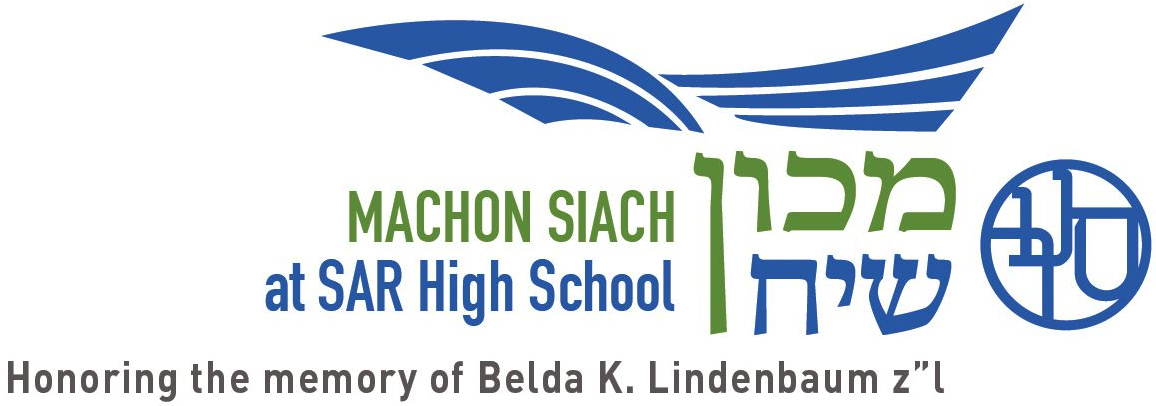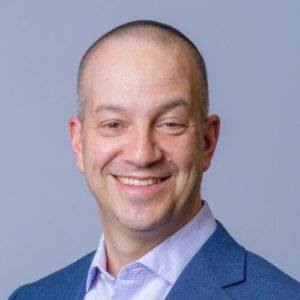
Teachers as Thought Leaders
In our new column, fellows of Machon Siach at SAR High School will explore topics related to Jewish education, curriculum and culture. These editorials are condensed from the fellows’ more comprehensive research.
Teachers of every discipline seek to inspire students to develop a meaningful and lifelong love for learning. In a yeshiva day school, this includes inspiring students towards a life of Torah, mitzvot and deep connection to the State of Israel. To accomplish these goals, teachers strive to perfect their pedagogical skills, including the methods and strategies of instruction, curriculum development, classroom management, and learning assessment. In today’s yeshiva day schools, learning extends beyond the classroom as well. Rich co-curricular programming has transformed the yeshiva experience from what it was even a generation ago. But we must go further.
As principal of a yeshiva high school, I see that our schools are positioned at the nexus of individual, family and community. They are a microcosm of the religious and cultural forces at play in the broader Modern Orthodox community, and teachers are at the center of that nexus. To keep our community vibrant, we need Jewish educators to be communal, moral and intellectual leaders, considering the ways in which students, parents, our social world, and even teaching itself rapidly change. To do so, teachers should think differently, beyond the delivery of information and the management and assessment of our students. We must constantly ask ourselves: why do we do it this way and not that? In what ways do our accepted practices serve the needs of our students? In what ways are they a disservice? What are our goals? How do we assess our success or lack thereof?
Joseph Schwab, legendary Professor of Education at the University of Chicago, wrote a series of essays entitled The Practical, in which he explained that every educational moment is composed of the teacher, the student, the curriculum and the milieu. When the bell rings and class begins, those elements intersect in a dynamic moment, full of energy and vitality. Considering all that is happening simultaneously in the classroom, we quickly realize that each student is different. Each teacher is also different, and today’s teachers are different from those of thirty and forty years ago. Our milieu – the political, social, economic, religious culture within which we live – has changed dramatically even over the last decade. And while we have a curriculum in hand, the particulars of this curriculum might have been designed differently and thus reshaped our current practice.
Too often, we leave this kind of global thinking to professors and researchers. Teachers teach, and scholars research. To strengthen our schools and to support our students, however, this relegation of scholarship to the halls of academia must change. Teachers themselves must become reflective researchers and thought leaders. We – school administrators but also parents, community leaders, and others – must empower teachers to explore and contribute to theories of education, commonly accepted school practices, and changes in community and educational culture. Strong teachers are more than conveyors of information, merely implementing commonly-accepted curricula in accordance with commonly-accepted expectations. They serve as role models and sources of inspiration. They share wisdom on religious, psychological, social and practical matters that affect their students. And they can do even more! Teachers should be offered the time and space to reflect thoughtfully on the expectations and assumptions that shape their craft. By developing a culture that encourages teachers to think broadly; conduct qualitative research; and fully develop and write out their ideas, perspectives and innovations, we create a professional discourse of exploration that allows for the cross pollination of ideas.
Machon Siach at SAR High School, honoring the memory of Belda Kaufman Lindenbaum z”l, seeks to shape the high school into a “thinking institution” by empowering teachers to meaningfully explore topics in Modern Orthodox education, bridging theory and practice in order to strengthen our capacity for living a committed and observant Jewish life while engaged with the broader world in our contemporary moment. Providing teachers with the opportunity to think deeply about the educational enterprise and share their thinking with others will strengthen our schools, ensure a path for teacher growth and renewal over the course of their teaching careers, and ultimately benefit our children as they attend reflective, dynamic, and vibrant yeshivot.
To help develop the discourse and the cross pollination of ideas, we have asked members of the Machon Siach team, who have been researching and writing about important pedagogical topics for the past several years, to share perspectives on their research here in the Jewish Link. In our new column, Siach Ba’Sadeh: Perspective from the Field, teachers will explore the complexities of grading in school, the relationship between teaching values and implementing policy, considerations of the role of money and materialism as it affects yeshivot, orientations to teaching Gemara and Israel, cultivating spirituality and meaningful prayer in our students, and other topics. Practical educational challenges can spark meaningful conversation among parents, community leaders and policy makers. We are excited to create this space for educators and we invite others to write about, respond to, and broaden the reach of these educational deliberations.



